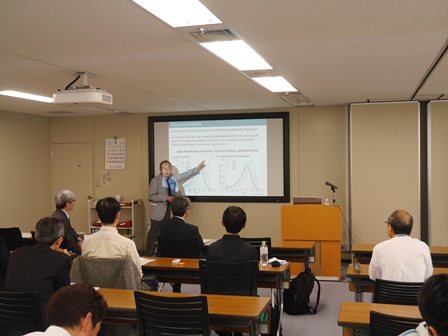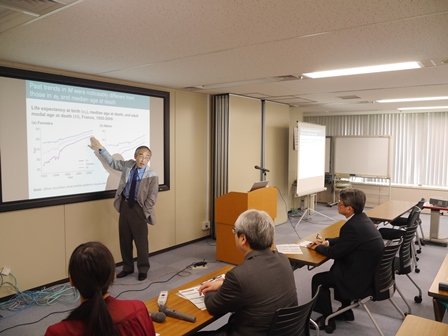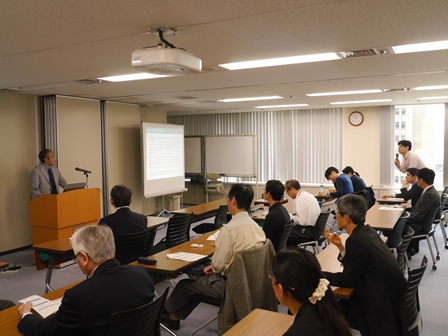![]()
Foreign Scholar Lecture Series
Date and time: 10:30 - 12:00, April 25 (Monday), 2016
Place: IPSS Meeting Room No.4 and 5, 6th floor, Hibiya Kokusai Building, 2-2-3 Uchisaiwai-cho, Chiyoda-ku, Tokyo
MAP
(TEL 03-3595-2984)
Lecturer: Shiro Horiuchi (Coordinator, Demography Program, CUNY Graduate Center, Professor, Department of Epidemiology and Biostatistics, CUNY School of Public Health)
Abstract:
In many economically developed countries, old-age survival has been extending considerably
since around 1970. I will discuss the importance and usefulness of the modal length of life
(M), one of central tendency measures of the age distribution of deaths, particularly in this
era of longevity extension. The other indicators include the mean age at death, which is widely
used as the expectation of life at birth (e0), and the median age at death. Also the life
expectancy at a lower old age (e.g., e65) is used when the focus is placed on old-age survival.
However, M has different mathematical, statistical and demographic characteristics from those
of the widely used indicators, and sometimes patterns of trends and differentials in M differ
from their patterns. M is a useful longevity indicator since it is determined solely by old-age
mortality. In developed countries, M is currently about 5 years longer than e0 (e.g., e0 is
87 years and M is 92 for Japanese females in 2014), thus e0 and M give the general public
quite different impressions about the typical length of life. Changes in M tend to reflect
the actual longevity extension more accurately than changes in old-age life expectancies such
as e65. Furthermore, in major mathematical models of age pattern of adult mortality, the mode
plays clearer roles than the mean and median. We recommend M to be included in the standard
set of demographic indicators and widely used in longevity research.



*Presentation and discussion were given in Japanese.


